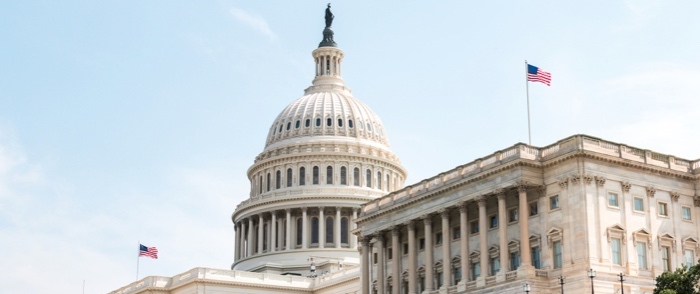Getting Ready For The Family Savings Act

U.S. workers must increase the amount of money they set aside for their twilight years. To do so, employees need access to retirement plans that are tied to their employment.
For a multitude of reasons, U.S. workers don't save enough for retirement. Tens of millions of these are employees who work for small businesses that do not offer a 401(k) plan. But help is on the horizon in the form of a new bill, the Family Savings Act (FSA), which has already made it past the U.S. House of Representatives. The goal of the Act is to make it easier for small businesses to sponsor and promote retirement savings and help American workers boost their funds set aside for retirement.
According to AARP, some 55 million American workers do not have access to a retirement savings plan provided by their employer. And for many that do have a retirement plan, their savings fall far short of the amounts needed to fund their retirement. As reported by CNBC, 42 percent of Americans have less than $10,000 saved for retirement.
Why do so many small businesses not offer a retirement savings plan? The lack of access often stems from reluctance to assume the considerable cost and administrative burden — not to mention the potential legal liabilities that come with such plans. Without an employer-sponsored plan, the burden shifts to workers to create their own, which often proves too overwhelming and confusing for individuals to undertake by themselves and leaves millions with little savings to show for their years of employment.
Making it Easier for Small Businesses to Sponsor Retirement Plans
There's another bill with similarities to FSA before the Senate called the Retirement Enhancement and Savings Act, or RESA for short. With the Democrats in control of the House and the Republicans retaining control of the Senate, we'll likely see both bills combined through a process of negotiation and compromise to complete a sweeping overhaul of how American workers can save for retirement. Retirement savings enhancements is an issue with broad bipartisan support in Congress.
In fact, FSA already addresses many of the issues raised by RESA, the older of the two bills, such as the portability of lifetime income investments, which provides for qualified annuity contracts.
Since the final bill to land on the president's desk will include elements of FSA and RESA, organizations should familiarize themselves with the key components of the House and Senate's retirement laws. Here's an overview of the more notable aspects of FSA and RESA:
- Unrelated employers can participate in the same plan, known as a "pooled employer plan," which, for purposes of compliance with the Employee Retirement Income Security Act (ERISA), would appear as one plan. Individual employers would benefit from lower costs and less administrative burden for participating in a pooled plan versus an isolated plan.
- Plan sponsors can claim a "safe harbor" when selecting an annuity provider, resulting in the reduction of legal liability when the company exercises the appropriate due diligence to select an annuity provider.
- Individuals aged 70 and a half or older can make non-rollover contributions to traditional IRAs.
- The FSA would introduce a new tax-preferred savings vehicle called a Universal Savings Account, with an annual contribution limit of $2,500. The account would receive the same tax treatment as a Roth IRA, but without the penalties for early withdrawal before retirement.
- Individuals would no longer need to complete a required minimum distribution if their qualified defined contribution plans do not exceed $50,000.
- The FSA would allow 529 education savings accounts to facilitate tax-free distributions for additional education expenses, including elementary and secondary school, up to a $10,000 limit annually.
- Under the FSA, plan participants can use up to $7,500 to pay for costs associated with a birth or adoption without incurring a penalty.
U.S. workers must increase the amount of money they set aside for their twilight years. To do so, employees need access to retirement plans that are tied to their employment, which are far easier to fund through deductions taken directly from their paycheck.
Indeed, the ability to "set it and forget it" (meaning a payroll deduction) may be the most important factor in preparing for retirement. One approach put forward by Ways & Means Committee Chairman Richard Neal in the past is an "Automatic IRA" plan, which would require all employers to participate in at least a basic retirement payroll deduction plan. This wasn't adopted, but several states, including California, Connecticut, Illinois, Maryland and Oregon, have enacted similar legislation in recent years. Other states and cities are now considering similar measures.
Whether your business offers a retirement plan or aims to do so in the future, there will be much for employers and their employees to learn when the final package of retirement savings enhancement legislation is finally adopted.
Ultimately, the success of the new law will depend on how employers and employees respond to the changes, and whether rates of participation for retirement plans begin to swell along with individual account balances.



